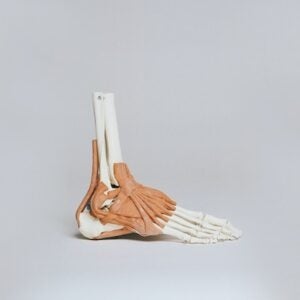The researchers reported that according to the findings 7 years of follow-up is too short a period to observe any reduction in colon cancer incidence.
NORCCAP is a population-based trial of 55,736 people aged 55 to 64 years randomized to flexible sigmoidoscopy screening with or without fecal occult blood testing or to usual care, with no colon cancer screening.
The primary endpoints of the ongoing study are incidence and mortality of colorectal cancer at 5, 10, and 15 years.
This first report from NORCCAP was presented here by principal investigator Geir Hoff, MD, professor of medicine at Telemark Hospital in Skien, Norway, and with the NORCCAP Center and the Cancer Registry of Norway in Oslo.
Dr. Hoff presented the 7-year cumulative incidence of colorectal cancer and the hazard ratio for mortality after 6 years.
The cumulative incidence of colorectal cancer was 134.5 cases per 100,000 person-years in the screened group and 131.9 cases per 100,000 person-years in the unscreened group.
No [statistically significant] difference was found in the 7-year cumulative incidence of colorectal cancer between the screening and control groups, Dr. Hoff said in a BMJ news release.
The NORCCAP investigators found a trend toward reduced colorectal cancer mortality, with a reduction of 27% among all individuals randomized to screening (hazard ratio [HR], 0.73; 95% confidence interval [CI], 0.47 – 1.13; P = .16).
However, for attenders (those randomized to screening who actually underwent flexible sigmoidoscopy) compared with control patients, there was a statistically significant 59% reduction in both total colorectal cancer (HR, 0.41; 95% CI, 0.21 – 0.82; P = .011) and a 76% reduction in rectosigmoidal cancer (HR, 0.24; 95% CI, 0.08 – 0.76; P = .016).
Dr. Hoff cautioned that analysis of attenders is prone to selection bias.
It appears that 7 years is …too early to say whether screening reduces deaths from colorectal cancer, Dr. Hoff said. The cancer-reducing effect of screening may be lower and will certainly occur later than anticipated, the NORCCAP investigators write.
Dr. Hoff offered 2 possible explanations for the unexpectedly small effect of flexible sigmoidoscopy screening. First, …either the method is not effective in reducing colorectal cancer… or second, …the lag period for the development of cancer from precursor lesions is considerably longer than is commonly assumed, he said.
Although the difference between the groups was not significant, we should be encouraged by this study’s interim findings, writes Thomas Imperiale, MD, professor of medicine at Indiana University Medical Center in Indianapolis, in an accompanying editorial in the BMJ.
Evidence to date strongly suggests that one time screening sigmoidoscopy can reduce incidence and mortality from colorectal cancer and may be a legitimate strategy, Dr. Imperiale said. The magnitude and duration of benefit have yet to be ascertained, along with acceptability in different populations and the effort and cost needed for implementation.
These findings make sense, when you look at the population as a whole, Lawrence Brandt, MD, chief of the Division of Gastroenterology at Montefiore Medical Center and professor of medicine at the Albert Einstein College of Medicine in New York City.
However, they only used sigmoidoscopy for colon cancer screening, rather than colonoscopy… But half a loaf is better than none, Dr. Brandt commented in an interview with Medscape Gastroenterology. It is always better to look at the whole colon.
The NORCCAP trial’s most important finding is where they found that individuals actually screened had significantly lower risk of dying from colorectal cancer compared to controls, indicating an effect of flexible sigmoidoscopy screening in those attending,’ Dr. Brandt said.





